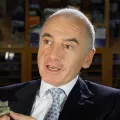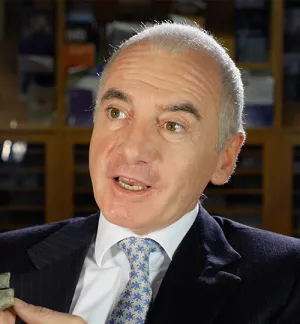The price of oil continues to be set by fear, not by supply and demand. World-wide oil production is growing quickly. By the end of the year, it will probably surpass 92 million barrels per day, with additional spare capacity of more than 3.5 million barrels. Thanks to the shale oil revolution, U.S. crude production could exceed 6.5 million barrels per day by the end of the year: around one million more barrels than the U.S. Energy Information Administration predicted in January.
Meanwhile, oil demand is growing sluggishly, a consequence of the troubled global economic situation. China's slowdown, the unsolved problems of the euro zone and energy-efficiency legislation in the U.S., Europe and some Asian countries will probably prevent demand this year from exceeding 89 million barrels per day.
At the same time, the exploration and production spending spree of the oil and gas industry continues, and in 2012, it will set a new record: more than $600 billion. High oil prices and the need of most companies to replace their reserves are the major factors driving this unprecedented investment, which will have particularly strong consequences on new production in the next few years.
Once again, Saudi Arabia has shown its huge potential by increasing and decreasing its own oil supply to meet market needs and political ends. Contrary to the expectations of most analysts, the Kingdom has the power to make up even bigger reductions in Iranian oil exports.
Yet most observers and expert continue to point to dire scenarios shaped by fear. By far the most important source of fear is the unfolding Iranian situation and the dire prospect of some kind of military escalation in the Persian Gulf, along with recurring violence in several Arab countries, which threatens the stability of the entire Middle East.
Another factor that tends to put a floor under current oil prices is a distorted perception of the current and future availability of oil. Perhaps fearing that we will soon reach "peak oil," most analysts seem convinced that oil will remain in tight supply in the future, and that new supplies will be too expensive to allow for a decline of oil prices.
To make matters worse, articles and comments about any oil issue often tend to be negative, betraying a mind-set trapped by Murphy's Law—if something may go wrong, surely it will go wrong. This mind-set exaggerates and thus misrepresents reality. Thus, we see countless analyses about future Saudi oil exports drying up, the probable implosion of the Libyan oil sector, the impossibility of Iraq achieving its ambitious oil targets, the impending decline of Russian oil output and so on. The same is true for the U.S. shale oil boom, which several observers continue to label a "temporary bubble"—as they did for shale gas years before.
With these negative blinders on, no one anticipated the very fast recovery of Libyan oil production, the limited impact of falling Iranian oil exports, the astonishing growth of U.S. shale and tight oil production, or the new records of Russian and Iraqi oil production. In other words, while most focused on the problems and presented only the negative possibilities, only a few looked at the reality.
Even fewer observers ask why global oil production continues to grow while pundits tell us that there is no room for such growth, because of the rapid depletion of oil resources. Nor do they ask how all this is possible even as Iranian exports decline?
In this context, short of a real crisis—open war in the Persian Gulf, for instance, or simultaneous disruption of oil supplies from several producing countries—the real forces shaping the oil market point to a significant downturn of oil prices. Yet market psychology may not recognize these forces and may continue to act as if oil prices are apodictically bound to increase. This could support oil prices into the future.
Clearly, the foundations of this psychologically based price support are questionable, which leaves the oil market prey to volatility and masks the risk of an oil price downturn hiding silently around the corner.
Mr. Maugeri is a Roy Family fellow at the Harvard Kennedy School. He previously served as a top executive at the Italian energy company Eni.
Maugeri, Leonardo. “The Coming Oil Glut.” The Wall Street Journal, November 6, 2012





